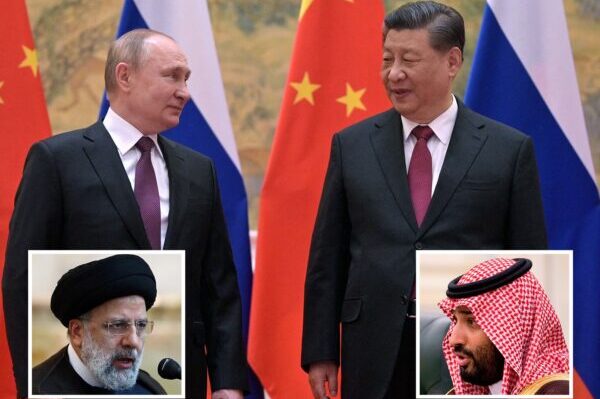As Saudi Arabia prepares to potentially join the BRICS, there is much to consider in terms of the impact on the country’s economy. While some may view this as a simple geopolitical move, it could have significant economic implications for the region and the world as a whole.
First and foremost, it is important to understand the economic power of the BRICS nations. Together, Brazil, Russia, India, China, and South Africa represent 40% of the world population and 25% of global GDP. If Saudi Arabia were to join this group, it would not only significantly increase the size and influence of the bloc, but also provide the country with access to a powerful network of economic partners.
One potential benefit of Saudi Arabia joining BRICS is increased trade opportunities. With its strong oil and natural gas resources, Saudi Arabia could become a key player in the energy trade within the bloc, which already dominates global oil and gas consumption with a 30% and 22% of the world share respectively. Additionally, as a member of BRICS, Saudi Arabia would have the opportunity to diversify its trade relationships beyond its traditional partners in the West, potentially leading to new markets and increased economic stability.
As the world’s largest exporter of oil, Saudi Arabia’s alignment with the BRICS nations would reshape the geopolitics of energy and potentially challenge the dominance of Western oil markets. With the BRICS countries collectively representing a substantial share of global oil consumption, the addition of Saudi Arabia would consolidate the bloc’s position as a major player in the energy market. This strategic partnership could lead to enhanced energy cooperation, joint ventures in oil exploration and production, and the establishment of alternative energy trading mechanisms, ultimately fostering greater energy security and resilience for all member states.
Another economic benefit of joining BRICS is increased investment opportunities. The bloc has already established the “New Development Bank” with a capital of $100 billion to rival the International Monetary Fund, and Saudi Arabia’s inclusion would add significant resources to this effort. The recent Bond yield by NDB was 5.1% which is astonishing 100 basis points higher than the likes of the World Bank. Additionally, the country’s strategic location and industrial growth could make it an attractive destination for foreign investment within the bloc.
Saudi Arabia’s access to China and India, two of the world’s largest markets, would facilitate increased exports and economic partnerships. Leveraging the technological innovation and manufacturing capabilities of BRICS members, particularly China, would accelerate Saudi Arabia’s growth in these sectors. The tourism industry, fueled by Saudi Arabia’s rich cultural heritage and natural resources, would also benefit from BRICS membership, attracting more visitors and generating employment opportunities.
In terms of cultural compatibility, Saudi Arabia aligns well with the BRICS nations, sharing conservative social, cultural, and religious values. This provides a foundation for stronger relationships and cooperation within the bloc. Additionally, the country’s historical trade connections with China and India further strengthen its ties to BRICS, fostering people-to-people interactions and cultural exchanges.
However, joining BRICS also presents potential risks and challenges. One such challenge is the potential for increased geopolitical competition between the West and the Eastern power bloc led by BRICS. As the global economy becomes increasingly divided, Saudi Arabia could play pivotal role to decrease the rifts between the blocs as a common friend.
Overall, Saudi Arabia’s potential inclusion in BRICS presents a win-win opportunity for Saudi Arabia as it will accelerate the economic diversification and development of the nation and reduce its dependence on Western blocs. Saudi Arabia’s recent decision to strengthen the relationship with Iran, brokered by China is the sign of tectonic shifts in the middle east which hopefully followed by joining the BRICS which will bring peace and prosperity in the region and beyond.
Shahid Hussain is the founder and CEO of UAE-based consulting firm Green Proposition and writes about matters which shape Trade and Business in the global Market.
Modern Diplomacy


Leave a Reply
You must be logged in to post a comment.